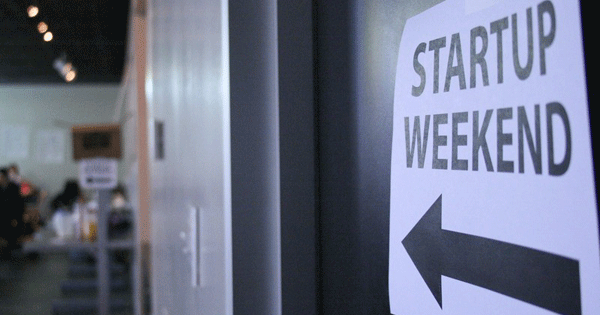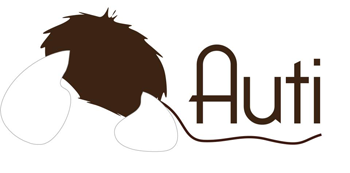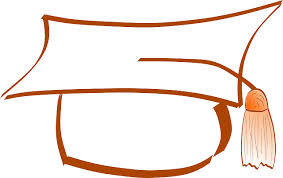Startup Weekend advice for participants from 5 former SW prize winners

Startup Weekend Hsinchu kicks off in 2 days and we thought it be useful to leverage the contacts we’ve made from participating to create some useful advice for participants:
Steven Thomas - co-founder of Vetter, which took 2nd place at the Taipei Startup Weekend in August 2011.
What did you spend most of your time doing at Startup Weekend?
Because I was our team’s only developer, I spent most of the time trying to keep my head down to get our demo product done. There were definitely some interesting people at the event that I wish I had more time to talk to, but when it came down to it, we were determined to get a working demo ready for the end of the weekend, so there wasn’t much choice but to throw on obnoxiously large headphones and dig in.
For the actual development process, it was extremely important for us to focus on exactly what you wanted to show on Sunday. We wanted to have a working demo, so it was crucial for us to focus on the core product. However, it was really easy to get sidetracked by ugly code, color schemes, cross-browser compatible shadows and other time consuming, and completely non-core things.
What do you wish you spent more time on?
I would have loved to spend more time talking with the different groups to get an idea of how the creative process worked for them. It would have also been great to talk more with the mentors and organizers to get their feedback, but for the reasons mentioned above, timing and my role within the group didn’t really allow for this.
What do you wish you spent less time on?
Figuring out simple things. Since this was the first real project I’ve ever done as a developer, I had to rely heavily on online resources like Textmate to ensure we were able to get the demo together. I probably spent about five or six hours just trying to get a scheduler to send out an automated email if a few simple parameters were met. It ended up being about three lines of code.
What tools did you use most?
I was really happy that I bought a copy of Textmate before the weekend, as it made our code a lot easier to navigate / work with, despite being extremely messy by the end of the 54 hours. I was also able to use some recycled code from projects that I had worked on personally, which helped to speed up the process and/or eliminate some banal tasks.
Otherwise, my business partner Duncan did a great job of keeping me well-supplied with coffee, and I made sure I was taking in a lot of calories; I think protein and fat rich foods are probably the best tool of all for Startup Weekends.
Any general advice for participants?
From a development perspective, I think going in with some HTML/CSS templates is a great start if you want to have a working demo by Sunday. There’s no point in wasting time doing this stuff during the competition, and you can always tweak/polish/redo it after the weekend if you decide to continue with your project. HTML5 Boilerplate is a great start.
Duncan Murtagh is Vetter’s other co-founder
What did you spend most of your time doing at Startup Weekend?
Going into Startup Weekend I had a pretty clear idea of what I wanted to get built (a simple system that'd help companies get more ideas from employees. So we didn’t have to spend a lot of time discussing what needs to get built, we just had to get building. Thus for a lot of the Saturday, my main role was to shelter Vetter’s superstar developer Steven from participants (not mentors) who just came to chat. Apart from that I spent time researching what competitors do, writing the copy for the site, figuring out how to solve certain problems that cropped up, buying props for the presentation/pitch and practicing for the pitch itself.
What do you wish you spent more time on?
Hmm, that’s a tough one. I’m generally quite focused and organized so I didn’t’ waste much time. I guess I would have tried harder to get some data or info from potential customers to validate our idea. That said, it’s tough to get hold of a manager in the West by phone or email on the weekend, especially when there’s an awkward time difference.
Also, I’ve read sales books that tell you that you need to be prepared to handle objections. I was not that well prepared for the objections that the Startup Weekend judges brought up after my pitch. This may have hurt us as I was stumped when they asked how we’ll reach customers. All I could do was admit it will be very challenging as the SEO is tough and the AdWords are very expensive.
What tools did you use most?
There was only 3 of us so we didn’t’ really need any special tools to track what everyone was doing, we just knew. I used Skype a couple of times and LinkedIn’s Poll tool to try to some useful survey data (we didn’t get enough replies for it to be useful). We used good old Gmail for passing stuff around, nothing fancy. Our friend Marcin also tried hard to get us to incorporate his API and web service for sending and receiving international SMS texts, but we shooed him away, no need for that fancy tech!
Any general advice for participants?
Make something other than a PowerPoint. I’m not going to lecture about how satisfying it is to make something or how you post Startup Weekend you can push forward to big things or anything, I’ll just point out a simple fact – you won’t win anything if you only have a PowerPoint. The judges just won’t award you a top 3 place. It would be against the whole spirit of StartupWeekend. Also, try to relax during the pitch. It ain’t the TechCrunch 50 where the judges expect you to be really polished. They know you’ve had limited time to prepare so just explain the problem you’re solving and how you’ll do it. Also, try to finish before the time, it looks classy - I think. If you left anything out the judges will ask about it.
Adarsh Menon - co-founder of Foodjing, which took 1st place at the Taipei City Startup Weekend in August 2011.

What did you spend most of your time doing at Startup Weekend?
50% developing the prototype. 50% making sure we had all the details covered for the final presentation.
What do you wish you spent more time on?
Seeing as we came in first, we didn't need to change anything. If we hadn't though, then chances are it would have come down to elements of the presentation that weren't refined enough.
What do you wish you spent less time on?
In retrospect, a lot of what we developed on the prototype couldn't be demoed in the final presentation, due to time constraints, so we could probably have done a better job of figuring out up front what we wanted to demo, and only worked on those parts.
What tools did you use most?
Google docs form for doing an initial survey. Powerpoint for the final demo. Other members of the team used a variety of resources for developing mockups and coding of the prototype.
Any general advice for participants?
It seems like a lot of people spent more time on the prototype and not enough time on the actual presentation, even though the latter is what you're being graded on. Find the list of criteria that you are being judged on, and make sure you cover all the required points.
Dylan and Ray - co-founders of Rumgr

Rumgr is a location based iPhone application that helps you sell your stuff. Think of it as an online garage sale. Rumgr is a product and award winner of the inaugural Las Vegas Startup Weekend.
What did you spend most of your time doing at Startup Weekend?
We divided our time fairly evenly between solidifying the idea, strategizing the business, and building the app.
What do you wish you spent more time on?
I wish we would have spent more time on the final presentation. We did well, but there were a few points about what made Rumgr awesome that I wasn't able to get across.
What do you wish you spent less time on?
I really love the name Rumgr, but it took us way to long to get to it. We argued over the name for quite a while before settling on Rumgr.
What tools did you use most?
For the development we xcode, iOS, Mac Books, Nodejs, html, css, photoshop, illustrator. For the business, google docs and Keynote all the way!
Any general advice for participants?
Don't rely on a good idea to sell itself. Discuss the idea with anyone who will listen so you can get to the point that you can describe your entire business in two sentences. Then get to the point where you can describe it in 1 minute. Then 5 minutes. Once you have all three of these down, you'll be able to sell someone on your idea in almost any situation.
Helen Andreae - the creator of Auti

Auti is an interactive, cuddly toy for autistic children which helps them learn positive play behaviours. Auti was highly commended at the Wellington Startup Weekend in November 2011.
What did you spend most of your time doing at Startup Weekend? Starting social media campaigns, doing customer validation, developing a business strategy and a financial plan. (It was pretty evenly split) As the leader I spent most of my time being a bit scatter brained, answering everyone’s questions as they were new to the project. My advice, if you are coming in with a developed idea, is to have a summary of what has already been done, where are the gaps, and a clear folder which can be initially copied to everyone with helpful files.
What do you wish you spent more time on?
Probably would have been good to spend a little more time on the website, but I think that we spent our time pretty well.
What do you wish you spent less time on?
Customer validation, in the end Auti needs to go through trials with autistic children, so although we gathered a large amount of positive feedback about the concept from the community and experts, it only goes so far.
What tools did you use most?
Google docs was used a lot. We had our product developed before hand, so for us it was about working out the business side.
Any general advice for participants?
The mentors are amazing, particularly for planning the business strategies. So spend time on thinking about good questions to ask, also make sure that they understand what it is you are aiming for. The weekend is amazing, but remember the business carries on so don’t have a short term focus!
"We wanted an online suggestion box that's easy to run and Vetter fits the bill"
Heather Saunders; ECITB Product Dev. Platform Manager
Book a Demo
